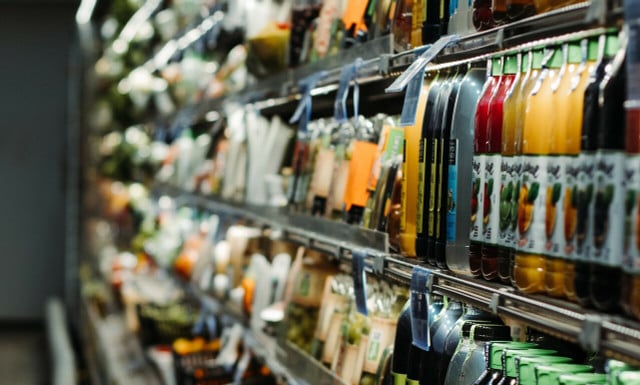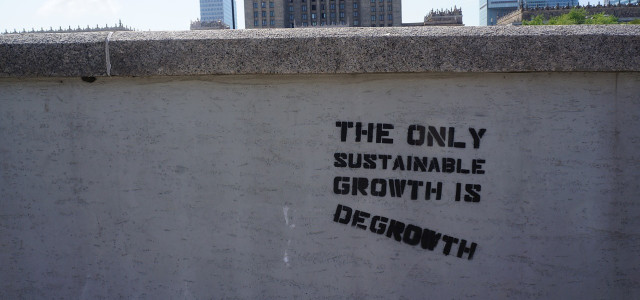Is green hushing the new — and harder to detect — greenwashing? What exactly does green hushing mean? How can we detect it? And what can we do about it?
Please go ahead and imagine something with me. We, you and me, are parents to two siblings. When they’ve done something wrong, the older one will just lie straight into your face and invent an entirely new narrative. We as parents can probably detect it rather quickly and scold the older sibling. The younger one, however, will just leave out important details to avoid negative consequences. And maybe we won’t even notice the younger sibling’s fault and leave out consequences altogether.
Of course, the parents in this thought play act as the public, the older sibling is greenwashing and the younger sibling personifies green hushing, sometimes also spelled as one word: greenhushing.
What Is Green Hushing?
Green hushing is the phenomenon when companies deliberately don’t communicate environmental efforts for a fear of being called out.
At first, it might seem harmless and harder to detect. But once you get around to noticing it, it can actually become more problematic than blatant greenwashing.
Greenwashing Is Becoming Harder for Companies

(Foto: CC0 Public Domain / Unsplash / Kishor)
Greenwashing is defined by the Cambridge dictionary as “behaviour or activities that make people believe that a company is doing more to protect the environment than it really is”. It can show through the use of buzzwords like “eco-friendly”, “green” or “aware”. These phrases might seem like a company is doing something for the environment, but these buzzwords are not entirely defined yet so they don’t hold real meaning.
In the last few years, consumers’ sensitivity towards Greenwashing has heightened and there have even been a handful of cases where companies have been sued and penalized for their misleading claims. H&M, for example, dropped the label “Conscious” on their collections to avoid further investigations by Dutch consumer watchdogs and paid 500.000 Euros in sanctions.
In the EU, legal changes are about to happen concerning corporate social responsibility. From 2024 on, companies are supposed to back all environmental claims with scientific evidence, making it much harder to juggle buzzwords. The so-called Green Claims Directive is supposed to protect consumers and empower conscious consumerism. The US counterpart, the Federal Trade Commission, also protects consumers by enforcing that environmental claims must be made in plain language, making it obvious whether claims are made only for parts of the product, and not overstating their environmental benefits.
Why Is Green Hushing So Problematic?



(Foto: CC0 / Unsplash / Ernie A. Stephens)
While these international changes are much needed to put an end to greenwashing, many companies will refer to leaving out environmental claims altogether. Swimming against a strong undercurrent of awareness and cancel culture, companies often don’t publish sustainability initiatives. According to the consultancy South Pole, nearly a quarter of 1,200 surveyed companies don’t plan on publishing their science-based emission targets.
In some ways, green hushing is more problematic than greenwashing because it can be harder for consumers to detect.
- Sustainability initiatives serve as a competitive advantage over other companies. If a company is not highlighting its sustainability efforts, it may be missing out on the opportunity to differentiate itself from competitors, attract environmentally conscious customers, or access sustainable financing options. If companies don’t disclose their initiatives anymore, competitors might also be less motivated to install their own programs. That way, green hushing could slow down progress and halt opportunities to collaborate.
- Green hushing can make it harder for stakeholders, including consumers, investors, and regulators, to hold companies accountable for their environmental impact. This lack of transparency will make it difficult to assess how well a company is performing in terms of sustainability.
- Ultimately, green hushing leads to confusion among consumers. If a company is not disclosing positive practices or impacts, consumers may never know about them. That’s why we might have to make a bigger effort to research a product’s or brand’s environmental impact.
What Can We Do Against Green Hushing?



(Foto: CC0 / Unsplash / Eduardo Soares)
Since green hushing is hard to detect, it also becomes hard to do something about it. However, as consumers, we have the power to change something in companies’ sustainability communication long-term.
Here’s what you can do against green hushing:
- Do your research. If you don’t find enough information, look out for third-party certifications like “USDA Certified Organic” or “Fairtrade” that provide independent verification of a product’s or brand’s environmental attributes.
- Read labels and ingredient lists. Especially concerning food and fashion, there are some ingredients or materials that will almost never be sustainable. If you don’t find any environmental claims on a website, tag or packaging, referring to these ingredients or materials might help you out enough already.
- Support companies with a genuine commitment to sustainability. Look for companies that have made a genuine commitment to sustainability, such as by setting ambitious environmental goals or investing in different types of renewable energy. Support companies that are transparent about their environmental impact and are working to reduce it so that companies notice that transparent communication about sustainability is actually a competitive advantage.
- Use your voice. As a consumer, you have the power to influence companies through your purchase decisions and by speaking out on social media or through other channels. This can be a very accessible way of environmental activism. If you come across a company that is engaging in green hushing, speak out and let them know that you expect them to be more transparent and authentic in their environmental claims.
Read more:
- What Is a Certified B Corporation? B Corp Explained
- Kourtney Kardashian Barker Announced as Sustainability Ambassador for Boohoo.com
- Carbon Neutral vs. Net Zero: What’s the Difference?
Do you like this post?








